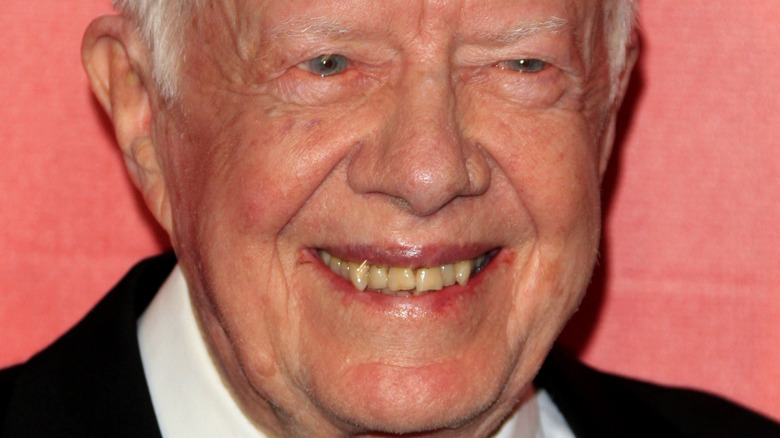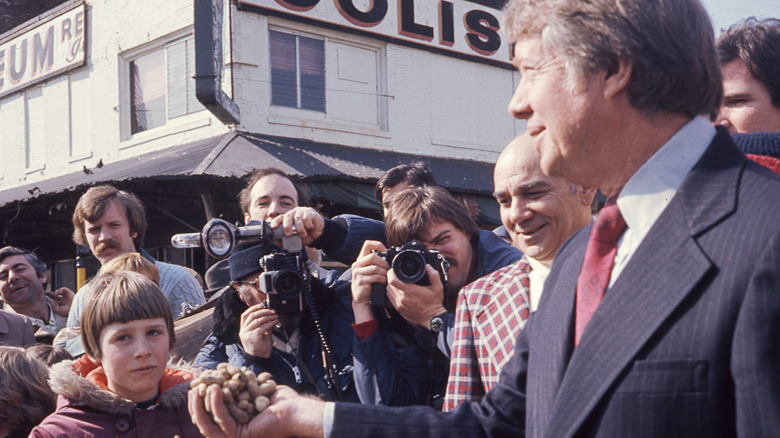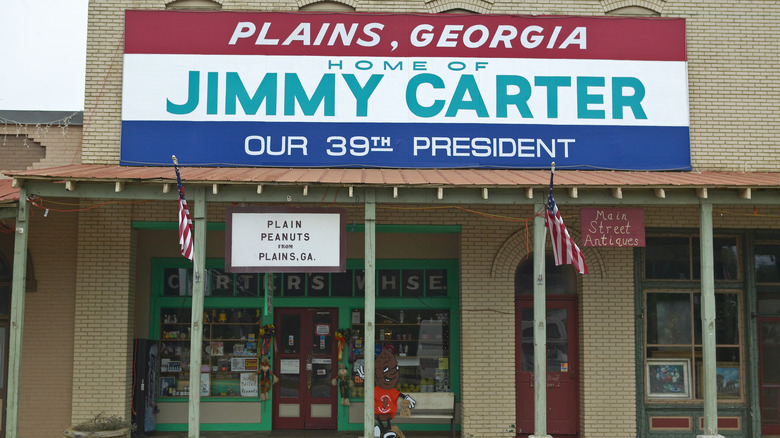The Tragic End To President Jimmy Carter's Family Peanut Business
Former President Jimmy Carter served as the 39th president of the United States. He served only one term, from 1977 to 1981, but his presidency implemented a number of policies to better the United States.
During his political career, Carter championed environmental protections and promoted renewable energy sources. Some laws he signed expanded wildlife refuges, required the cleanup of waste sites, and expanded the national parks. His dedication to preserving the environment may have stemmed from his home life growing up.
Prior to his presidency, Carter grew up on his parents' peanut farm in Plains, Georgia, which grew the legumes for use in candy bars, as feed for pigs, or to be enjoyed on their own. Carter found a passion for the product and began selling boiled peanuts on the streets at only five years old. Before his presidency, he took over ownership of the family farm, and the peanut even became a symbol of his presidential campaign.
Carter took over his family's farm
President Jimmy Carter took over his parents' peanut farm in 1953 after his father died. Though his initial plan was to manage it just as his father had — buying and reselling seed — he decided to try his hand at actually growing the peanut seeds. He was able to expand the business, and it became more profitable. By the time Carter began his bid for the presidency, Carter Farms had between 2,000-3,000 acres of farmland, which Carter controlled 91% of. His brother, Billy Carter, managed daily operations at Carter Warehouse, a peanut warehousing business.
When Jimmy Carter became president, his farm was placed into a blind trust. Not wanting to worry about the farm while in Washington, he instead shifted his sole focus to his presidential duties. A law firm managed the operations of the business while he worked in the White House. Unfortunately, while Carter was away, the farm faced hardships. Changes in management combined with three consecutive drought years had plunged the farm into financial trouble. By the time he returned to the farm, he was over a million dollars in debt.
The Carters had to recover from the debt
The Carter family tried to recover from the debt, but they couldn't afford to continue maintaining the farm. Eventually, they made the difficult decision to sell the family farm to prevent slipping into further debt. To make up the money owed, the Carters began writing and selling books for some extra income. Jimmy Carter has written 30 books, including an autobiography titled "A Full Life: Reflections at Ninety," and a children's book titled "The Little Baby Snoogle-Fleejer," which was written by Carter and illustrated by his daughter, Amy.
Although the Carters no longer have ownership of the family farm, the town of Plains, Georgia still relies on peanuts as its main crop. The town has two peanut processing warehouses, which employ many of the town's 700 citizens. Additionally, each year, during the fourth weekend in September, the town hosts an annual harvest celebration in honor of the peanut. The celebration often includes a parade, arts and crafts, and of course, peanut-themed foods.


